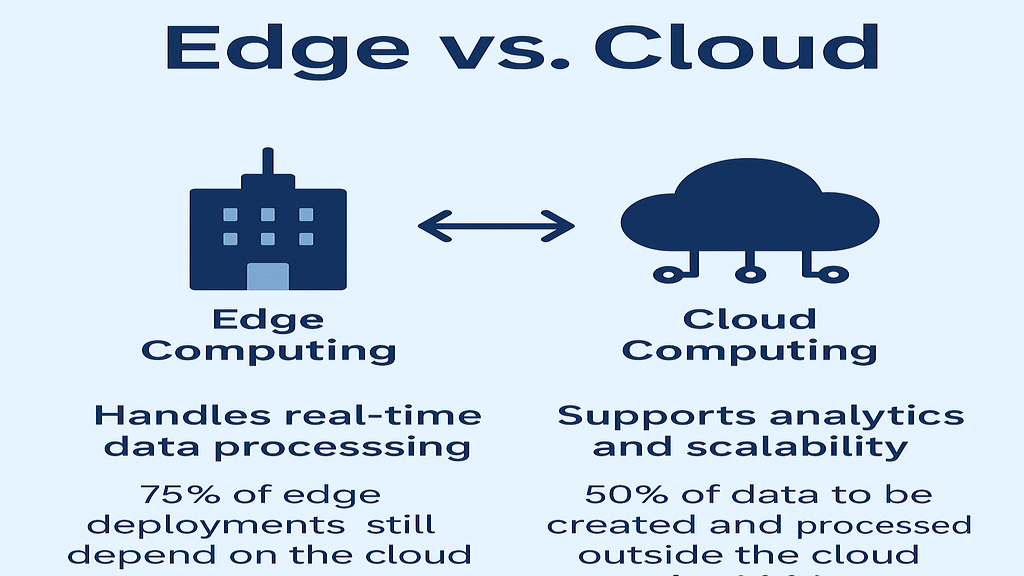Mobile Edge Computing (MEC) is one of the most powerful technologies. Computation and storage brought to the edge make computation close to the end user. As a result, it diminishes latency, improving performance further. Orchestrators form the heart of MEC. It is mainly responsible for efficiency and dependability in a system.
Covered Contents
ToggleWhat is an Orchestrator?
An orchestrator resembles a manager. It coordinates and controls different resources inside the MEC system. It includes computing power, storage, and network functionalities. The orchestrator makes all components work harmoniously for efficient performance. This contributes to better and faster reactions by the system.
Know the Brain Behind Edge Computing: The Orchestrator
`An orchestrator is like a genius manager. It ensures that everything in edge computing flows like silk. Without it, edge computing would be chaos. If you’re working with edge computing, make sure to include orchestrators on your list. They are not just useful; they are a requirement for success.
Why Are Orchestrators Important?
Orchestrators are important for several reasons:
Gaming Without Delay:
When you play online games, orchestrators ensure that you do not experience lag. They make the game run smoothly and fast.
Safer Self-Driving Cars:
Self-driving cars have to respond very quickly. Orchestrators assist in processing instantaneous data from car sensors.
Smart Cities That Work:
Traffic lights, security cameras, and city services all work better with orchestrators managing them.
Resource Assignment:
Orchestrators assign resources according to demand. This means that no resource goes to waste. It also helps to balance the load across the network.
Task Scheduling:
They schedule tasks efficiently. This ensures that processes happen at the right time and place. It improves the overall speed and reliability of the system.
Scalability:
MEC systems have to scale with demand. Orchestrators make this possible. They manage the dynamic addition or removal of resources.
Fault Management:
Orchestrators detect and manage failures. They reroute tasks to available resources. This keeps the system operational.
Energy Efficiency:
Orchestrators minimize energy consumption by optimizing resource usage. This is vital for green computing.
The Cool Tech Behind Orchestrators
AI Power
They learn from patterns
They predict problems
They make smart decisions
Automatic Everything:
They handle routine tasks.
They automatically adjust resources
They update applications when necessary
Key Functions of MEC Orchestrators
Orchestrators perform many essential functions:
1. Service Deployment
Orchestrate services at the edge; this is placing services next to the users who want to use them. This reduces latency and boosts the user experience.
2. Policy Enforcement
The orchestration will enforce what operators have put in place, for instance, giving preferential treatment to certain applications at peak times.
3. Optimization of Data Flow
Orchestration ensures optimal data flow in a network. This means decongestion and smooth communications.
4. Security Management
They manage security controls. This includes encryption of data and access controls. It safeguards the system against threats.
Challenges in Orchestration
Despite the significance, orchestrators face various challenges:
Complexity: Managing many devices and applications is complicated.
Interoperability: Ensuring different systems work together is tough.
Latency: Orchestrators must act quickly to avoid delays.
Cost: Advanced orchestration tools can be expensive.
Future of Orchestrators in MEC
Future orchestration: The future will see a rise in the role of orchestrators. As MEC grows, they’ll be integrating AI into more intelligent decision-making. They have to work with larger, complex networks, new technologies, 5G, and IoT.
Final Thoughts
Orchestration is at the core of Mobile Edge Computing. They manage resources, optimize performance, and ensure reliability. Without orchestrators, MEC would not be efficient or effective. As technology advances, orchestrators will be at the core of making edge efficiency possible. Edge computing is changing our world. Orchestrators make sure that the changes happen smoothly. They’re the key to making edge computing efficient and reliable.




2 thoughts on “Unlocking Edge Efficiency: The Crucial Role of Orchestrators in Mobile Edge Computing (MEC)”